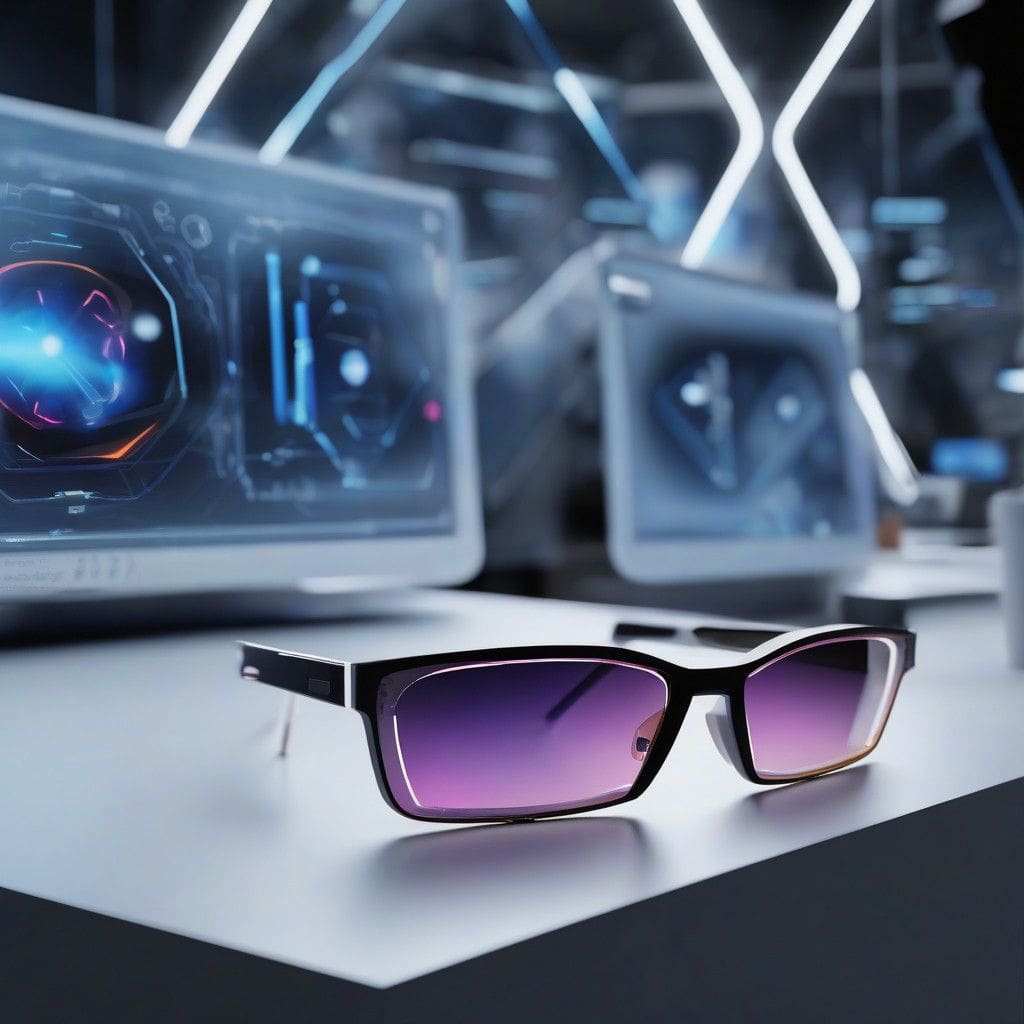At its recent Connect conference, Meta Platforms showcased its first working prototype of augmented reality (AR) glasses, known as Orion. This ambitious transition into the world of AR by the tech giant is spearheaded by CEO Mark Zuckerberg, who characterized the chunky black glasses as a revolutionary step toward blending virtual and physical realities. The Orion glasses may ultimately serve as a “time machine,” transforming how users interact with technology.
The design of the Orion glasses incorporates a durable magnesium alloy and is powered by custom silicon engineered by Meta. Among the notable features are advanced functionalities such as hand-tracking, voice commands, and an innovative wrist-based neural interface. These capabilities promise to enhance user engagement with both real-world applications and digital content seamlessly.
While Meta has set its sights on a consumer launch in 2027, the company is aware of the market challenges that lie ahead. Previous attempts at AR technology from other tech giants have faced obstacles and skepticism. Despite these hurdles, analysts recognize Meta’s goal of democratizing augmented reality, making it accessible to a broader audience. Nevertheless, prevailing public skepticism surrounding AI technology poses a critical barrier that Meta must address.
During the conference, Zuckerberg revealed that the glasses’ capabilities were demonstrated through video clips, showcasing testers interacting with the device. Among the testers was Nvidia CEO Jensen Huang, illustrating the high-profile interest in the technology. Along with the Orion glasses, Meta’s existing Ray-Ban smart glasses have gained traction, particularly after the integration of an AI assistant that enables users to scan QR codes and stream music using simple voice commands. Future improvements for these Ray-Ban smart glasses will feature real-time language translation and video generation capabilities.
In parallel with its AR developments, Meta also unveiled significant updates to its AI technology. One of the highlights includes enhanced audio responses from Meta AI, which can now mimic the voices of celebrities. With a staggering user base exceeding 400 million monthly active users for Meta AI, the company is intensifying its investment in both AI and AR sectors. The anticipated capital expenses for Meta are projected to range between $37 billion and $40 billion for the year 2024, indicating a robust commitment to advancing these technologies.
However, not all news is positive for Meta. The Reality Labs division, which oversees the development of augmented reality and virtual reality technologies, reported substantial losses amounting to $8.3 billion in the first half of 2024. This raises questions about the sustainability of such ambitious investments, especially in the volatile technology landscape.
Despite profitable technology advancements, the road ahead for Meta’s Orion glasses remains fraught with uncertainty. It will be crucial for the company not only to deliver groundbreaking features but also to cultivate public trust in AI technologies. Engaging with consumer concerns and demonstrating the practical benefits of augmented reality could play pivotal roles in ensuring the successful launch and adoption of Orion.
In conclusion, the introduction of the Orion AR glasses represents a bold move by Meta toward redefining the intersection of augmented reality and daily life. While there are challenges to overcome, the potential implications for both technology and consumer experience are profound. If successful, these glasses could revolutionize how we interact with the world around us and pave the way for a future where digital content is integrated more naturally into our everyday tasks.












